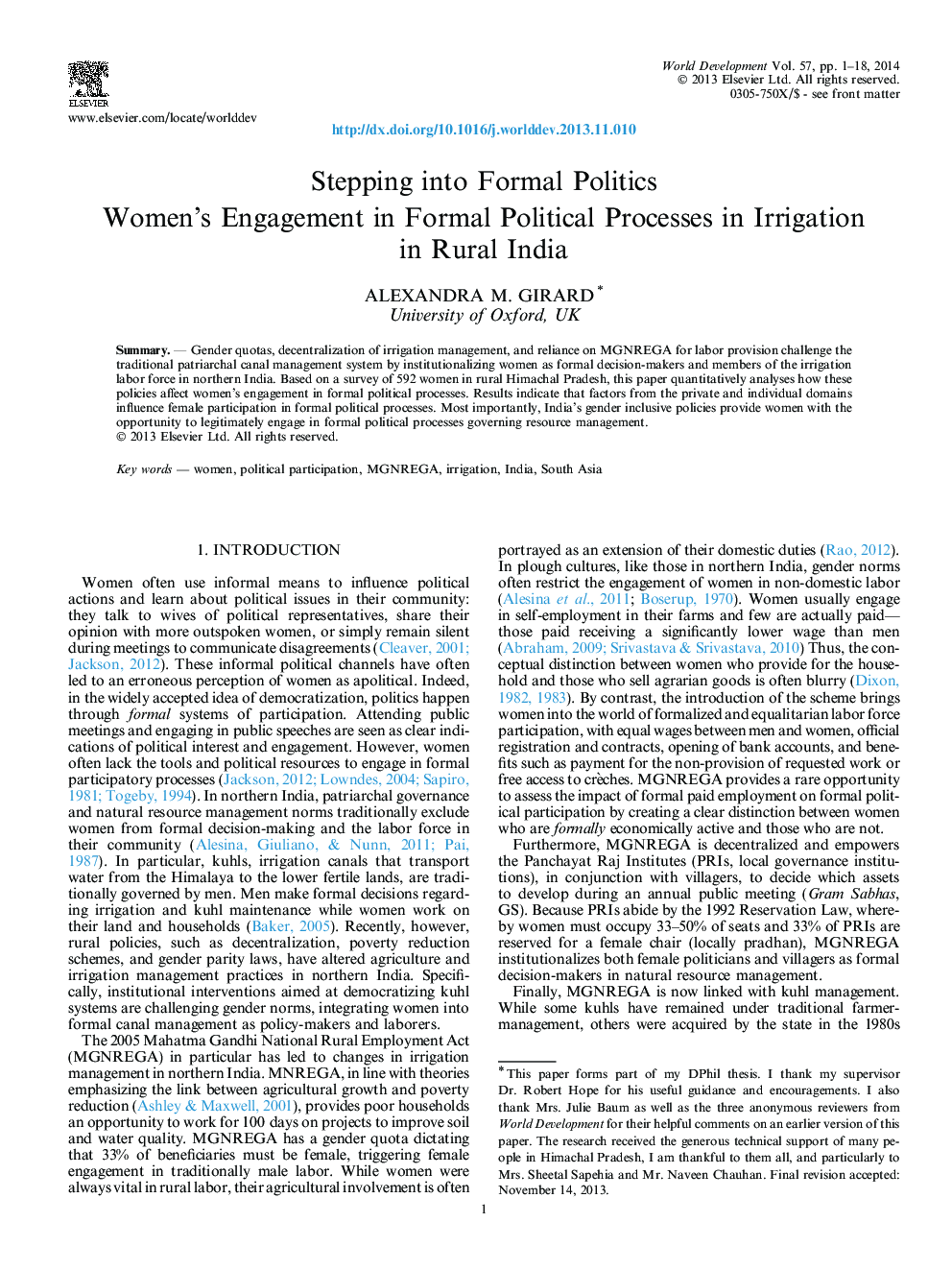| Article ID | Journal | Published Year | Pages | File Type |
|---|---|---|---|---|
| 991734 | World Development | 2014 | 18 Pages |
SummaryGender quotas, decentralization of irrigation management, and reliance on MGNREGA for labor provision challenge the traditional patriarchal canal management system by institutionalizing women as formal decision-makers and members of the irrigation labor force in northern India. Based on a survey of 592 women in rural Himachal Pradesh, this paper quantitatively analyses how these policies affect women’s engagement in formal political processes. Results indicate that factors from the private and individual domains influence female participation in formal political processes. Most importantly, India’s gender inclusive policies provide women with the opportunity to legitimately engage in formal political processes governing resource management.
